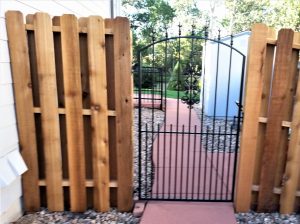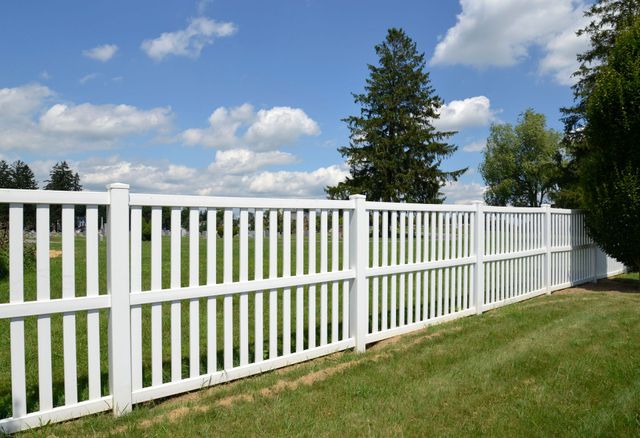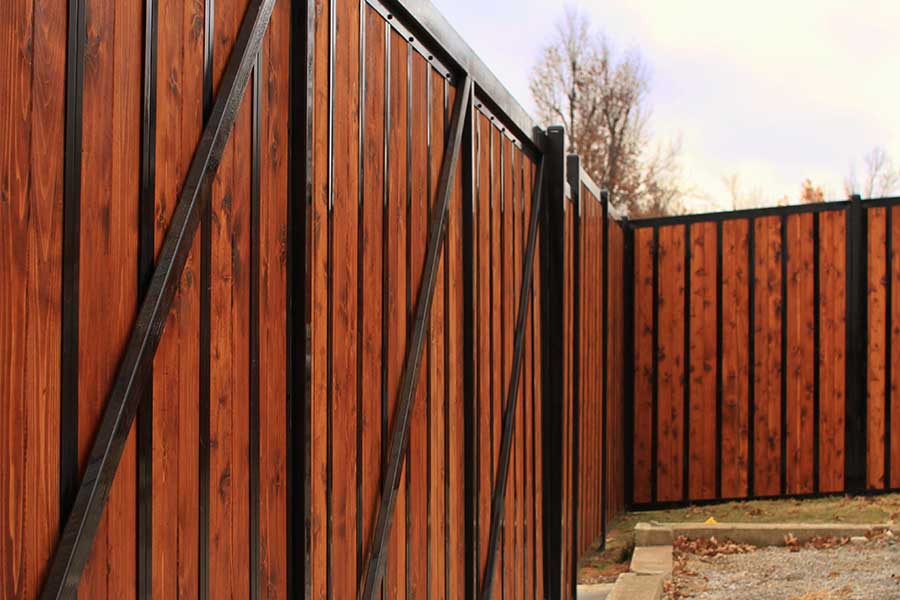All Categories
Featured
When you decide to set up a fencing around your residential property, it's essential to recognize the permit requirements certain to your area. Here's a comprehensive appearance at the authorizations you might require for fence installment.
Why Do You Required a License for Fence Installment? A fence is more than simply an obstacle between homes-- it can affect security, building worth, aesthetic appeals, and also environmental conditions. City governments need licenses to guarantee that fencings meet certain standards and do not cause troubles for energies, neighbors, or the community in its entirety. Permits also guarantee that the installation conforms with zoning legislations, constructing codes, and safety guidelines.
![]()
Kinds of Authorizations You May Require. Building License. A structure license is one of one of the most common licenses required for fence installation. This authorization makes certain that the fencing fulfills neighborhood building ordinance. As an example, if you're building a fence over a certain elevation (commonly over 6 feet), you'll likely require a structure authorization. The regional building department will commonly evaluate the site and evaluation plans to make certain the framework is secure and does not obstruct public areas or create threats.
Zoning License. Zoning laws control just how land is used in a particular area, and they consist of policies regarding fences. A zoning authorization ensures your fencing follows height, problem, and area policies. As an example, fences might require to be established back a certain range from pathways, roadways, or residential or commercial property lines to avoid obstruction or disturbance with utilities. Sometimes, zoning laws can additionally define which materials are permitted.
HOA Authorization. If your building belongs to a homeowners association (HOA), you may require to look for approval prior to setting up a fence. HOAs typically have guidelines that regulate the aesthetic appeals and structure of fences to guarantee they are in harmony with the neighborhood. You could require to submit your strategies for approval, and the HOA may limit fence material, height, or design.
Specialized Permits. In some areas, there may be extra authorizations needed for details situations. For instance, if your fencing is near a secured environmental area or located in a flooding zone, you may require to obtain specialty licenses connected to ecological impact. Likewise, if the fencing remains in an area with below ground utilities, you may need to acquire clearance to prevent destructive pipelines or cable televisions.
![]()
Easement or Utility Company Permission. Prior to mounting a fence, it's crucial to examine whether the home consists of an easement, such as an utility easement, which could influence where you can place your fence. Easements are areas of land designated for private or public energies, and you might require authorization from the utility business or other authority to construct within this area.
Just How to Learn What Permits You Need. To make sure that you're adhering to all the necessary policies, right here's exactly how you can determine the specific permits needed for your fence installment:
![]()
Visit Your Regional Federal Government Workplace: The initial step is to check with your regional structure or zoning department. Numerous cities and areas have guidelines available online that specify what kinds of licenses are required for fence installment. If not, visiting the workplace or calling in person can help make clear the process. Examine Your City's Web site: Numerous communities supply information about fence installments and the permits called for via their main websites. Some websites also enable you to submit applications on the internet. Get In Touch With a Fence Setup Expert: If you're not sure regarding local policies, a specialist fence professional can assist. They know with the permitting process and can lead you through the actions. The Repercussions of Not Obtaining an Authorization. Failing to secure the needed licenses before mounting a fence can lead to considerable effects. You may be fined or called for to get rid of the fence entirely. In addition, if you make a decision to offer your residential or commercial property in the future, the lack of a permit could prevent potential customers, as they may see it as a sign that the home is not certified with neighborhood legislations. Making sure that you have the proper authorizations will certainly save you time, money, and headaches over time.
Conclusion. Installing a fence around your house can add both safety and security and curb appeal, but it's vital to ensure you're following the legal steps in the procedure. Researching the certain authorization needs for your location, including structure authorizations, zoning policies, HOA authorization, and energy authorizations, will help guarantee your fencing installment goes efficiently. Taking the time to recognize these requirements now can conserve you from pricey blunders and prospective legal concerns down the line.
Why Do You Required a License for Fence Installment? A fence is more than simply an obstacle between homes-- it can affect security, building worth, aesthetic appeals, and also environmental conditions. City governments need licenses to guarantee that fencings meet certain standards and do not cause troubles for energies, neighbors, or the community in its entirety. Permits also guarantee that the installation conforms with zoning legislations, constructing codes, and safety guidelines.

Kinds of Authorizations You May Require. Building License. A structure license is one of one of the most common licenses required for fence installation. This authorization makes certain that the fencing fulfills neighborhood building ordinance. As an example, if you're building a fence over a certain elevation (commonly over 6 feet), you'll likely require a structure authorization. The regional building department will commonly evaluate the site and evaluation plans to make certain the framework is secure and does not obstruct public areas or create threats.
Zoning License. Zoning laws control just how land is used in a particular area, and they consist of policies regarding fences. A zoning authorization ensures your fencing follows height, problem, and area policies. As an example, fences might require to be established back a certain range from pathways, roadways, or residential or commercial property lines to avoid obstruction or disturbance with utilities. Sometimes, zoning laws can additionally define which materials are permitted.
HOA Authorization. If your building belongs to a homeowners association (HOA), you may require to look for approval prior to setting up a fence. HOAs typically have guidelines that regulate the aesthetic appeals and structure of fences to guarantee they are in harmony with the neighborhood. You could require to submit your strategies for approval, and the HOA may limit fence material, height, or design.
Specialized Permits. In some areas, there may be extra authorizations needed for details situations. For instance, if your fencing is near a secured environmental area or located in a flooding zone, you may require to obtain specialty licenses connected to ecological impact. Likewise, if the fencing remains in an area with below ground utilities, you may need to acquire clearance to prevent destructive pipelines or cable televisions.

Easement or Utility Company Permission. Prior to mounting a fence, it's crucial to examine whether the home consists of an easement, such as an utility easement, which could influence where you can place your fence. Easements are areas of land designated for private or public energies, and you might require authorization from the utility business or other authority to construct within this area.
Just How to Learn What Permits You Need. To make sure that you're adhering to all the necessary policies, right here's exactly how you can determine the specific permits needed for your fence installment:

Visit Your Regional Federal Government Workplace: The initial step is to check with your regional structure or zoning department. Numerous cities and areas have guidelines available online that specify what kinds of licenses are required for fence installment. If not, visiting the workplace or calling in person can help make clear the process. Examine Your City's Web site: Numerous communities supply information about fence installments and the permits called for via their main websites. Some websites also enable you to submit applications on the internet. Get In Touch With a Fence Setup Expert: If you're not sure regarding local policies, a specialist fence professional can assist. They know with the permitting process and can lead you through the actions. The Repercussions of Not Obtaining an Authorization. Failing to secure the needed licenses before mounting a fence can lead to considerable effects. You may be fined or called for to get rid of the fence entirely. In addition, if you make a decision to offer your residential or commercial property in the future, the lack of a permit could prevent potential customers, as they may see it as a sign that the home is not certified with neighborhood legislations. Making sure that you have the proper authorizations will certainly save you time, money, and headaches over time.
Conclusion. Installing a fence around your house can add both safety and security and curb appeal, but it's vital to ensure you're following the legal steps in the procedure. Researching the certain authorization needs for your location, including structure authorizations, zoning policies, HOA authorization, and energy authorizations, will help guarantee your fencing installment goes efficiently. Taking the time to recognize these requirements now can conserve you from pricey blunders and prospective legal concerns down the line.
Latest Posts
Practical Beauty for every single Home
Published Apr 20, 25
1 min read
The Perfect Flooring for Every Home
Published Apr 20, 25
1 min read
Smooth Floor Covering Installment-- The Carpet Interiors Floor & Home Way
Published Apr 20, 25
2 min read